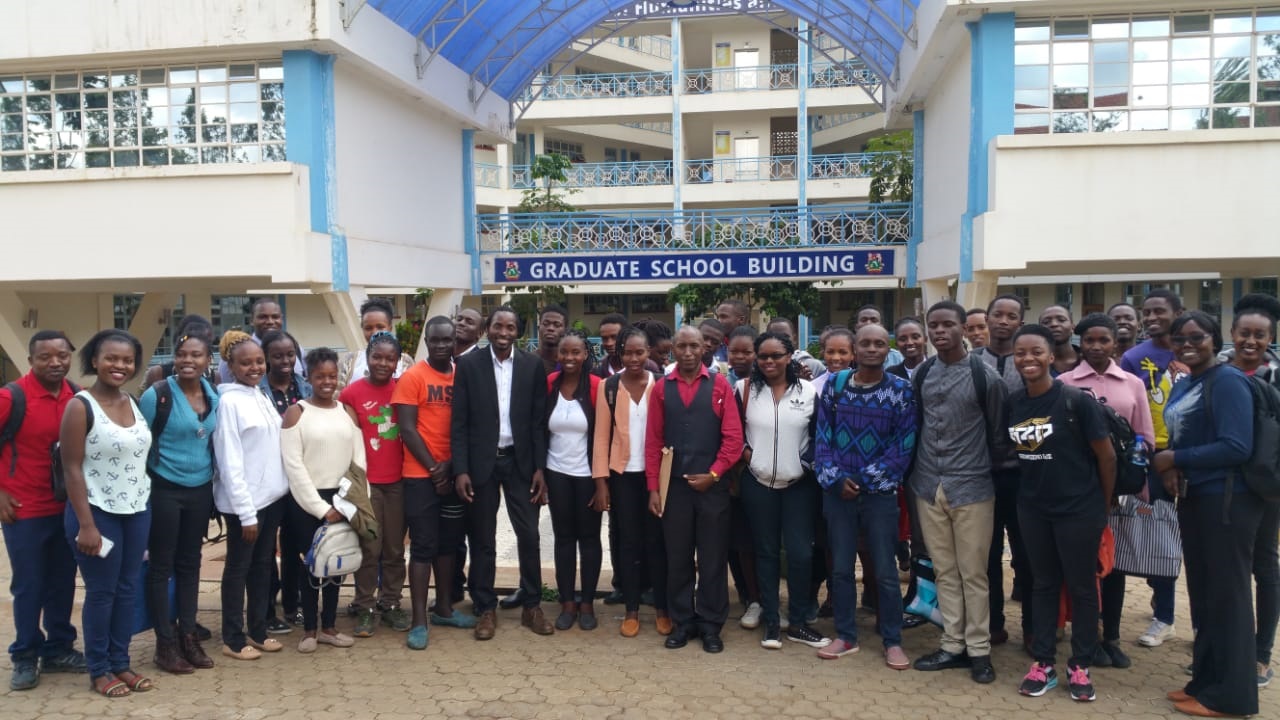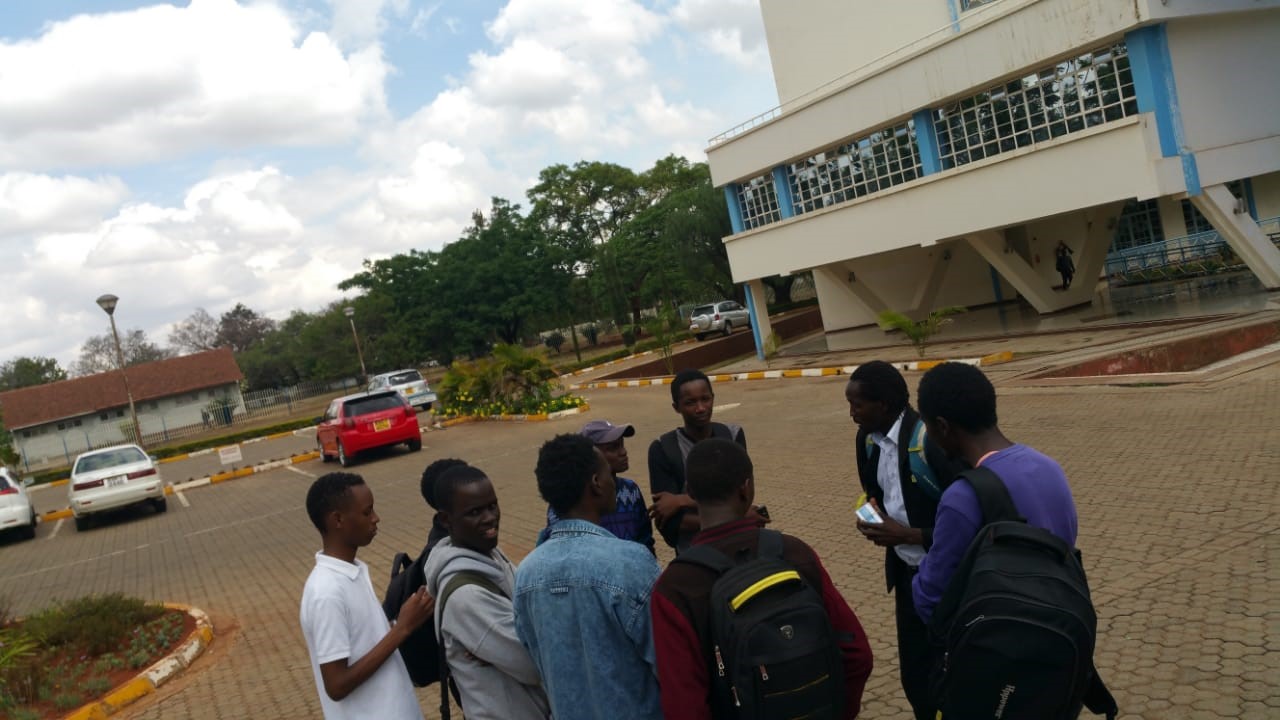“Giving back the outcome of my research”
Dennis Gengomoi Akena about his public lecture series in Uganda and Kenya
by Dennis Gengomoi Akena
The theme of my public lecture in October 2018, “Socio-Political Transformation of Uganda through Sports Education 1500-2018”, was adopted from the outcome of my doctoral dissertation project at the University of Cologne about sports education practices in Uganda. The idea of a public lecture series and a research dissemination workshop in East Africa followed an expression of interest into the outcome of my doctoral research from Mr. Omara Apitta, the Commissioner of the Ministry of Physical Education and Sports in Uganda. During my fieldwork between March and October 2014 I had worked there as an intern. My fieldwork activities had further extended to four case study schools where I worked as a Physical Education teacher and researcher.
I used Mr. Omara Apitta’s request to discuss with the a.r.t.e.s. Graduate School the opportunity to disseminate my research findings in East Africa. I was granted funding through the programme “a.r.t.e.s. international – for all” to travel to East Africa where I held public lectures at three universities including Kenyatta University in Kenya and Makerere University as well as Gulu University in Uganda. The planned half-day workshop could not take place as the activity collided with a crucial Ministerial meeting. It was not possible to negotiate and re-schedule the workshop within the period I was destined to visit Uganda. We have agreed on a policy brief report which is yet to be delivered to the ministry of education and sports. The objectives of my visit in East Africa were: (1) To enhance my career growth and development as well network with key stakeholders including the governments, universities, scientists and students in the East African region; (2) to familiarise with good practices in academia by giving back the outcome of my research and through mutual exchange of experience, knowledge and ideas with students, scientists and key stakeholders; (3) and, last but not least, to create a forum to disseminate and discuss my research outcome more effectively and openly with a broader audience. Through the forum, I aimed at gaining more insights into my research, discuss and share research outcomes with key actors.
Public lectures at East African universities
My presence at the public lectures as an African scholar discussing my research outcome was an inspiration to students and teaching staff. After the talks, students and lecturers engaged me as they sought to discuss my personal experience and interests. Questions from students ranged from inquiries about western universities, how it was possible for me to study in western universities, and what possibilities exist for them, why western scholars and western universities are viewed as dominant. Over all I got a good feedback like Mr. Kaweru Franklin, one of the participants remarked:
“It is unimaginable how to this point I could not see sports beyond fun and running around the sports playground in schools. In your discussions, you bring out ideological perspectives and you give practical examples. It is intriguing to realise what role sports can do to us and our society and how the state governments have utilized sports education as an integral part of the education system. Your discussion brings out the link between state and sports politics.” Franklin, Makerere University
The theme of my discussion seemed to be unique and revealing at the three universities. They stimulated public discussions on key issues in society relating to sports, state politics, environment and education. It was provoking to the participants to observe that the philosophical and ideological perspectives of sports in the African context have not been somehow attended or neglected in sports studies, yet sports have played an important role in both educating and indoctrinating children and youth for generations. The link between sports and state politics within society and the African context seemed not to be obvious among participants. Most participants expected discussion into sports federations, national and international sports championships. My talk and discussion focused on ideological and philosophical perspectives on sports education in the contemporary and historical era. The talk triggered discussions on the political perspectives on sports education, the study of sports as a new field of study, governance of sports in governmental and educational institutions. This concern was clearly expressed by Mr. Joseph at Kenyatta University as he pointed out:
“We do not have qualified professionals working in the education and sports sector especially in the area of sports governance. Most of the existing manpower are drawn from the various disciplines, former athletes and those politically elected and trained on job under respective sports federations or state institutions. How can we fill this gap?” Joseph, Kenyatta University
Inspiration for building new partnerships
During the discussions, the audience observed that there are almost no qualified professionals working within the sports sector and related sports and educational institutions within the East African region. Further discussion and suggestion summed up to a programme of study that could produce qualified professionals in sports governance across the various sports institutions and sectors. During the public talk, participants suggested the possibility to establish networks within and between the East African regional universities as well as with western universities to promote academic exchange and research in sports and other field of studies. Those partnerships may also contribute to the production of qualified personnel in government institutions, education and academic institution and the broader sports sector, the practice of sports, and governance across the East African region. I would like to encourage doctoral students to create opportunities and possibilities to disseminate and share their research outcome with key stakeholders, academic institutions and public as a two-way knowledge and academics exchange: from fieldwork research to academia and from academia to society.



